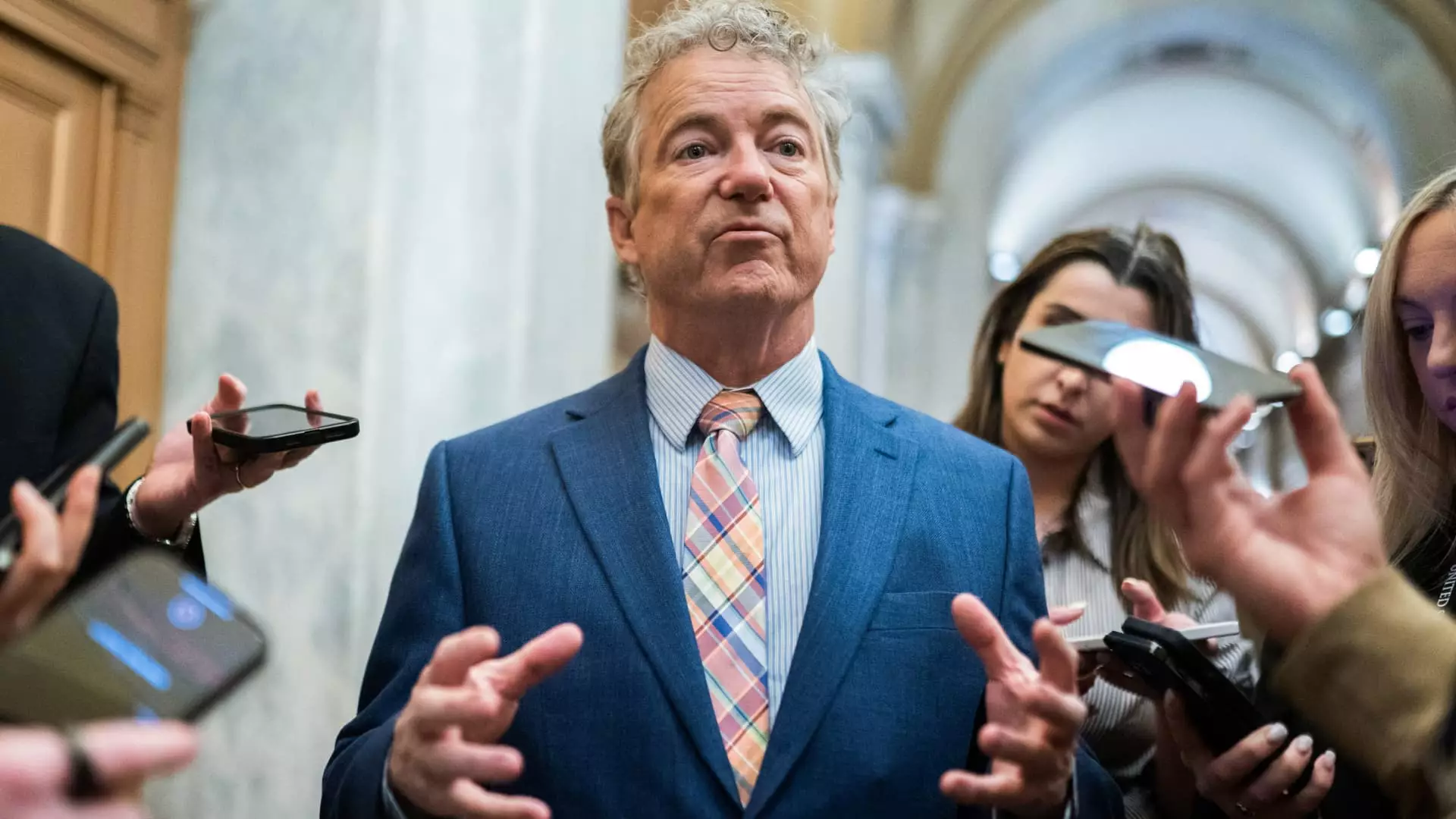In the tumultuous realm of American politics, few interactions are as revealing as the spat between Donald Trump and Rand Paul over a colossal budget bill. This recent confrontation emphasizes the growing rift within the Republican Party as it navigates fiscal policy that some see as groundbreaking and others as fiscally irresponsible. Trump’s enthusiastic endorsement of the budget bill, dubbed “one big, beautiful bill,” stands in stark contrast to Paul’s vehement criticisms of its provisions, particularly the staggering $5 trillion increase in the debt ceiling. As a centrist liberal, my perspective aligns with Paul’s skepticism toward such expenditures, especially when they threaten to mount unsustainable debt on future generations.
The Risks of Escalating Debt
At the heart of Paul’s argument is a fundamental principle of fiscal responsibility: increasing the debt ceiling equates to a tacit acceptance of an extravagant spending trajectory with no apparent end in sight. With national deficits projected to surge as a result of the proposed budget, one must question the wisdom of such drastic financial moves. Trump’s assertion that this plan will lead to “tremendous GROWTH” fails to acknowledge the inherent risks associated with incurring massive debt. While proponents of the bill tout potential benefits like tax cuts and the extension of social programs, the lurking threat of a burdened economy is far too significant to dismiss. As taxpayers, we should prioritize a balanced approach that minimizes risk while still fostering economic growth.
Libertarian Principles and Fiscal Discipline
Rand Paul’s libertarian viewpoint emphasizes a strict interpretation of fiscal responsibility, advocating that the government should not engage in deficit spending unless absolutely essential. His disapproval of the budget bill further underscores a broader ideological divide within the party. Paul’s comments about the bill being an indication that “we’ll borrow that much” raise essential questions about the long-term implications of such decision-making. Without imposed limits or conditions on spending, the debt ceiling increase may pave the way for future fiscal mismanagement. It is unsettling to witness leaders, including Trump, disregarding these critical concerns purely for political expediency.
Moreover, the renegotiation of social programs like Medicaid and SNAP reveals a deeper issue: essential services to vulnerable populations may be at risk as the government scrambles to accommodate an overstretched budget. It begs the question: Are we sacrificing the well-being of millions for the sake of achieving a political win? This thought should reverberate within any political discourse.
Political Maneuvering or Economic Strategy?
Trump’s scathing remarks towards Paul reveal a disturbing trend in contemporary politics—vaunting political loyalty over principled economic discourse. In an era where political identity is often conflated with economic policy, dissenting voices like Paul’s should not be dismissed simply because they challenge the status quo. Labeling Paul’s ideas as “crazy” and “losers” is not merely a sign of frustration; it is indicative of an unwillingness to engage in nuanced discussions about fiscal policy. The reaction suggests a level of desperation as Trump rallies support for what he perceives as crucial legislation. However, his tactics may alienate crucial allies who share concerns regarding the long-term economic health of the nation.
A Compromise for Stability
Interestingly, although Paul expresses a desire to implement tax cuts permanently and negotiate spending cuts, his willingness to compromise hinges on striking down the excessive debt ceiling increase. This call for responsible governance should resonate across party lines. The notion that Republicans can only lose three votes to push through potentially detrimental legislation is not just a party concern; it reflects the broader implications for American fiscal policy. The reconciliation process may appear advantageous in theory, but bypassing democratic consensus can have dire repercussions on American governance.
Trump’s bold fiscal proposals, while ambitious, should be approached with caution. Engaging critical voices like Rand Paul can open avenues for balanced and sustainable economic strategies that prioritize future stability over short-term gains. As this debate unfolds, it becomes increasingly clear that without sufficient scrutiny, we may find ourselves leaping headfirst into a financial abyss.

Leave a Reply